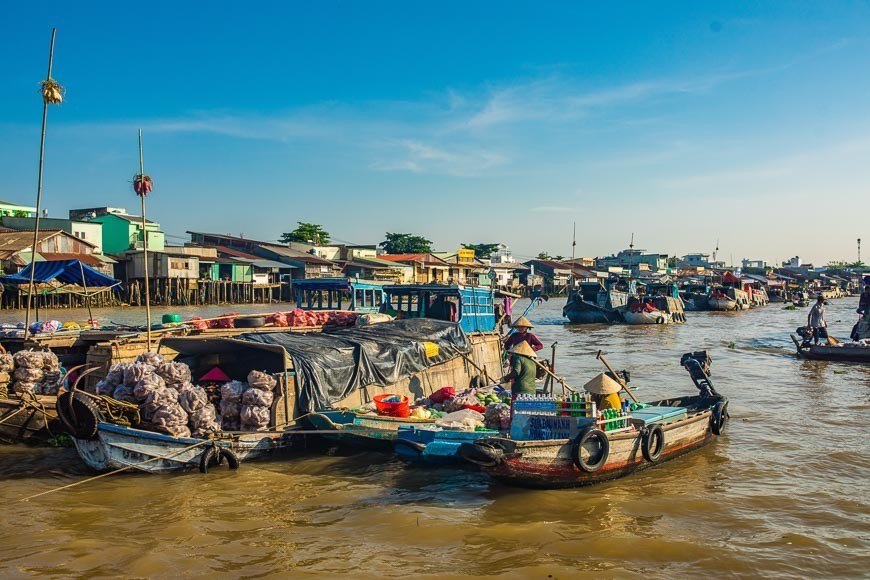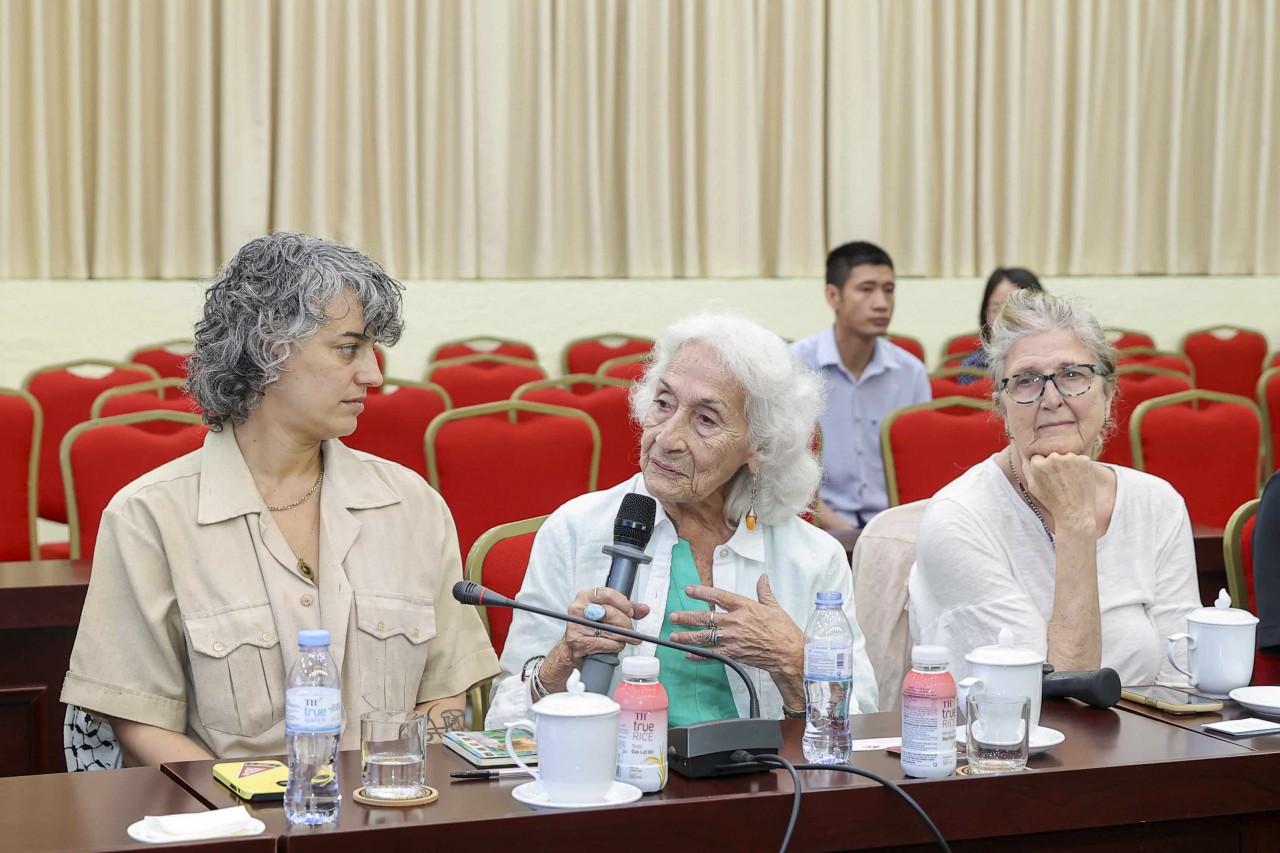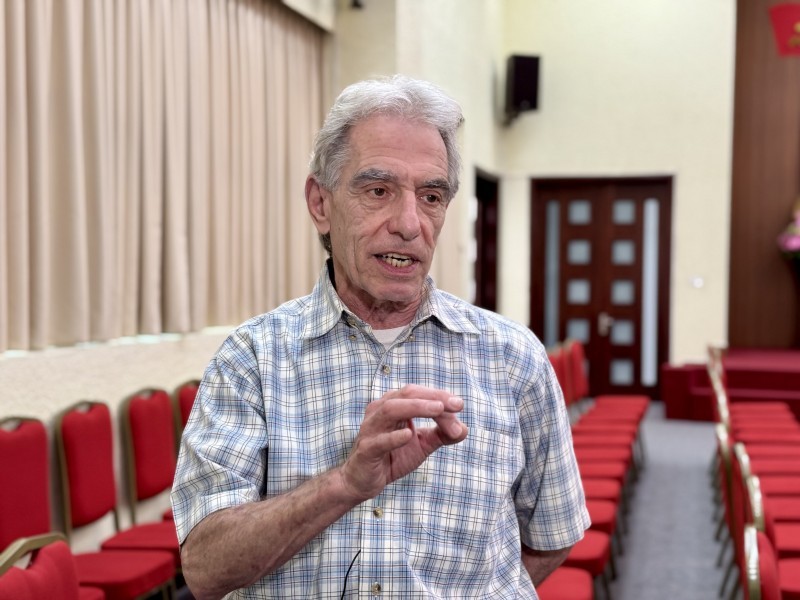WB: Vietnam's Economy Continues to Show Resilience
Available data suggest continued recovery of domestic economic activities, with industrial production growing by 8.5 percent year on year and a broad-based improvement in manufacturing despite the surge of new COVID-19 cases to over 100,000 infections per day by the end of February, as reported by NDO.
After falling in January, production of computers, electronics, and optical products bounced back, posting a year-on-year growth of 9.1 percent. Apparel manufacturing maintained strong performance with a 24.7 percent growth against the same period last year, according to the report.
Retail sales grew by an estimated 3.1 percent in February. Sales of consumer services continued to recover, increasing by 5.9 percent, the first expansion since May 2021, as accommodation and catering services sales grew strongly. Sales of goods increased by 2.4 percent.
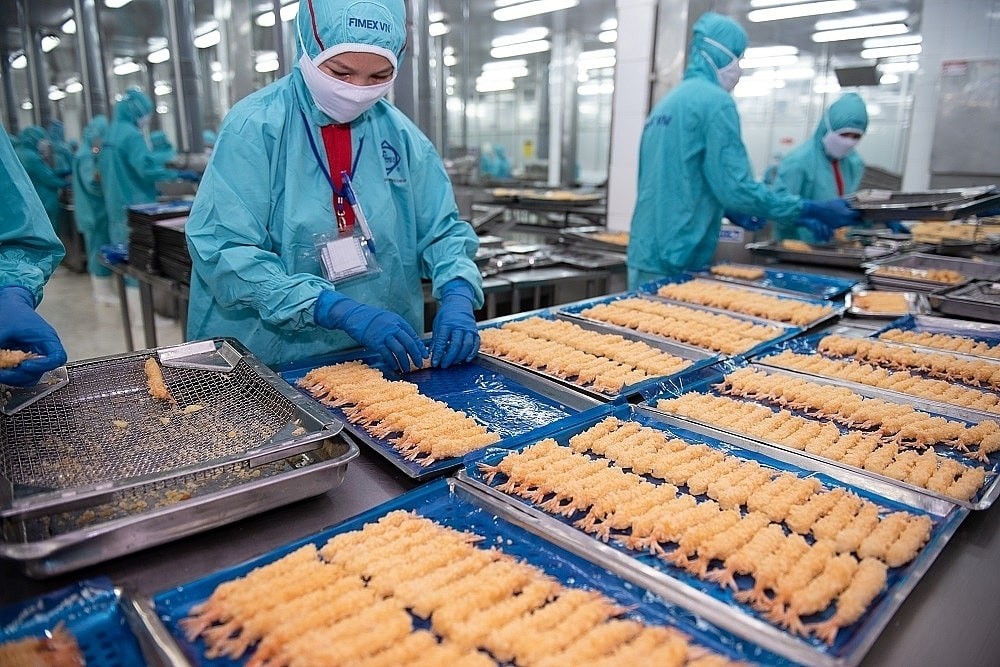 |
| Photo: VCCI |
With imports growing much faster than exports, trade balance deteriorated from a surplus of 1.4 billion USD in January to a deficit of 2 billion USD in February.
Higher export growth rate could be attributed to phones, computers and electronics and machinery, whose exports grew by 6.2 percent in February.
Exports of garment-textile remained strong, growing by 25.8 percent. Strengthening imports partly reflect a jump in imports of phones, computers and electronics components from 14.9 percent in January to 32.3 percent in February.
Imports of petroleum products also increased by 146.8 percent, clearly reflecting rising oil prices. By trading partners, exports to the US remained robust, expanding by 14.6 percent while exports to China rebounded, growing by 19.5 percent after a 15.2 percent drop in January.
The WB brief also indicated that FDI commitment slowed while FDI disbursement continued to recover strongly.
Vietnam attracted 2.9 billion USD of FDI commitment in February, 15.9 percent lower than a year ago. Most of the commitments were made by existing firms intent on expanding their production facilities.
The disbursement of approved FDI projects increased by 7.9 percent in February, a third month of increase.
“CPI inflation remained subdued thanks to relatively stable food prices and still weak domestic demand. Credit demand remained strong after the Lunar New Year, keeping overnight interbank interest rate at 2.56 percent at the end of February, compared to less than 1 percent at the end of 2021,” the report continued.
Budget balance saw a 1.1 billion USD surplus in February as revenue performance remained strong. Expenditures increased thanks to improved disbursement of public investment.
Revenues grew by 5.3 percent in February while expenditures increased by 6.1 percent thanks to improvements in the execution of the public investment programme.
Over the first two months, the Vietnamese Government collected 22.9 percent of total planned annual revenues. The Government also spent 12.8 percent of planned expenditures. Public investment disbursement improved significantly, reaching 8.6 percent of the target set by the Prime Minister, much higher than the rate 5.1 percent recorded in the same period last year.
The State Treasury issued 412 million USD worth of Government bonds denominated in local currency in February, raising total bond issuance to 1.4 billion USD, or 8.1 percent of annual plan in the first two months.
WB experts noted that Vietnamese authorities should encourage exporters to seek new markets and innovate into new products through global value chains and existing free trade agreements to strengthen export resilience. Keeping track of domestic price developments is also warranted.
Continued administration of the vaccine boosters and renewed health guidance are critical to manage the Omicron wave, the bank recommended.
In January, WB also predicted that Vietnam’s economic recovery is likely to accelerate in 2022 as GDP growth is expected to rise to 5.5% from 2.6% in the year just ended.
Entitled “No time to waste: The Challenges and Opportunities of Cleaner Trade for Vietnam”, the edition argued that greening the trade sector should be a priority. Trade, while an important driver of Vietnam’s remarkable economic growth over the past two decades, is carbon-intensive - accounting for one-third of the country’s total greenhouse gas emissions - and polluting.
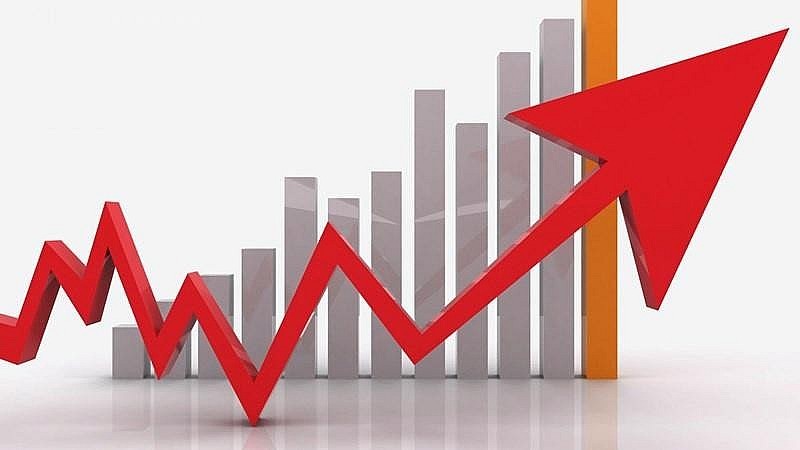 |
| Vietnam’s economic recovery is likely to accelerate in 2022. Photo: VGP |
While Vietnam has started to decarbonise activities associated with trade, more need to be done to respond to mounting pressures from main destination markets, customers, and multinational companies for greener products and services, it said.
“Trade will be key component of Vietnam’s climate actions in the years to come,” said Carolyn Turk, World Bank Country Director for Vietnam. “Promoting greener trade will not only help Vietnam follow through on its pledge to reach net zero emission in 2050 but will also help it keep its competitive edge in international markets and ensure trade remains a critical income and job generator.”
The report recommended that the Vietnamese Government act on three fronts: facilitate the trade of green goods and services, incentivize green foreign direct investment, and develop more resilient and carbon-free industrial zones.
Assuming the Covid-19 pandemic will be brought under control at home and abroad, the forecast envisioned that Vietnam’s services sector will gradually recover as consumer and investor confidence restores, while the manufacturing sector benefits from steady demand from the US, the European Union, and China. The fiscal deficit and debt are expected to remain sustainable, with the debt-to-GDP ratio projected at 58.8%, well below the statutory limit.
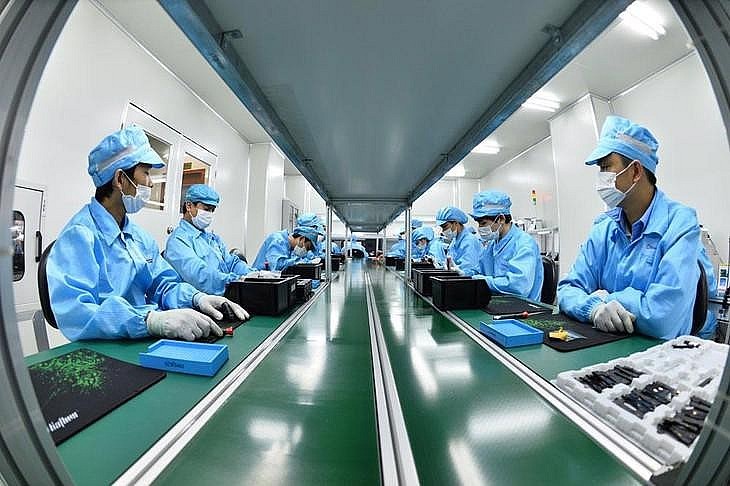 |
| GDP growth is expected to rise to 5.5% from 2.6% in the year just ended. Photo: VnEconomy |
The outlook, however, is subject to serious downside risks, particularly the unknown course of the pandemic. Outbreaks of new variants may prompt renewed social distancing measures, dampening economic activity. Weaker-than-expected domestic demand in Vietnam could weigh on the recovery. In addition, many trading partners are facing dwindling fiscal and monetary space, potentially restricting their ability to further support their economies if the crisis persists, which in turn could slow the global recovery and weaken demand for Vietnamese exports.
WB experts said careful policy responses could mitigate these risks. Fiscal policy measures, including temporary reduction of VAT rates and more spending on health and education, could support aggregate domestic demand. Support for affected businesses and citizens could be more substantial and more narrowly targeted. Social protection programmes could be more carefully targeted and efficiently implemented to address the severe and uneven social consequences of the crisis. Heightened risks in the financial sector should be closely monitored and addressed proactively.
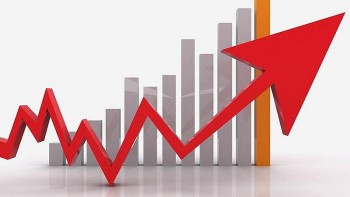 | WB: Vietnam’s Economic Growth Expected to Accelerate to 5.5% in 2022 Vietnam’s economic recovery is likely to accelerate in 2022 as GDP growth is expected to rise to 5.5% from 2.6% in the year just ended, ... |
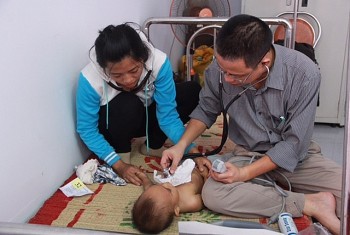 | Transforming Maternal and Newborn Care for Healthier Ethnic Minority Families Save the Children, an international non-governmental organization (NGO), is trying to improve maternal and newborn health in ethnic minority communities in the central highlands’ province ... |
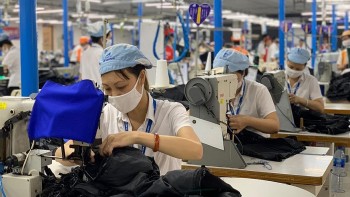 | WB Loan Supports Vietnam to Recover from the Pandemic The Government of Vietnam and the World Bank have signed a US$221.5 million credit agreement to support Vietnam’s recovery from the COVID-19 pandemic through policy ... |
Recommended
 Economy
Economy




